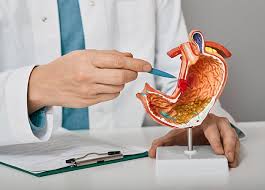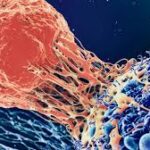Digestive disease specialists, commonly referred to as gastroenterologists, focus on diagnosing and treating disorders of the digestive system. This includes the gastrointestinal (GI) tract, liver, pancreas, and gallbladder. These vital organs work together to process food, absorb nutrients, and eliminate waste. When issues arise within this system, they can impact overall health and quality of life. Here are three primary categories of conditions managed by these specialists:
Upper Digestive Tract
The upper digestive tract includes the esophagus, stomach, and the first part of the small intestine (duodenum). Digestive disease specialists frequently address conditions in this area. These include issues such as gastroesophageal reflux disease (GERD), peptic ulcers, and Barrett’s esophagus.
GERD occurs when stomach acid flows backward into the esophagus, causing discomfort, including heartburn and regurgitation. This condition may lead to complications such as inflammation of the esophagus or Barrett’s esophagus. This is a condition in which the esophageal lining changes, which increases the risk of esophageal cancer. Specialists manage GERD with a combination of dietary modifications, medication, and, in severe cases, procedures to tighten the lower esophageal sphincter.
Peptic ulcers, or sores in the stomach lining or duodenum, arise due to infections with Helicobacter pylori bacteria or prolonged use of nonsteroidal anti-inflammatory drugs (NSAIDs). Left untreated, ulcers may cause bleeding or perforation. Gastroenterologists diagnose ulcers through endoscopy and treat them with antibiotics, acid blockers, and in some cases, surgical intervention.
Lower Digestive Tract
The lower digestive tract includes the small intestine, large intestine (colon), and rectum. Specialists frequently manage conditions such as inflammatory bowel disease (IBD), irritable bowel syndrome (IBS), and colorectal polyps. IBD encompasses Crohn’s disease and ulcerative colitis, which involve chronic inflammation of the digestive tract. Crohn’s can impact any part of the GI tract, while ulcerative colitis typically affects the colon and rectum. Symptoms of IBD include abdominal pain, diarrhea, fatigue, and weight loss.
IBS is a functional disorder affecting how the gut interacts with the brain. While it does not cause structural damage, it causes abdominal pain, bloating, and changes in bowel habits. Management often includes dietary adjustments, stress reduction techniques, and medications to alleviate specific symptoms.
Colorectal polyps are growths in the colon or rectum that may develop into cancer if left untreated. Specialists remove these polyps during a colonoscopy, which allows both diagnosis and treatment in one procedure. Regular screenings, particularly for individuals over 50 or with a family history of colorectal cancer, are key for early detection and prevention.
Hepatobiliary Diseases
Digestive disease specialists also address hepatobiliary diseases, which affect the liver, gallbladder, and bile ducts. These conditions include liver diseases such as hepatitis, fatty liver disease, and cirrhosis, as well as gallstones and bile duct obstructions.
Viral hepatitis, caused by infections such as hepatitis A, B, or C, leads to inflammation of the liver. Chronic hepatitis B and C can result in liver damage, cirrhosis, or liver cancer. Treatment involves antiviral medications to control the infection and prevent complications.
Nonalcoholic fatty liver disease (NAFLD) is another common condition linked to obesity, diabetes, and high cholesterol. It occurs when fat accumulates in the liver, sometimes causing inflammation and scarring. Specialists recommend weight loss, a well-balanced diet, and management of underlying conditions to prevent disease progression.
Find Digestive Disease Specialists
Digestive disease specialists play a key role in managing a variety of conditions affecting the GI tract and related organs. From addressing upper digestive disorders such as GERD and ulcers to tackling lower tract issues like IBD and IBS, these experts diagnose and treat a wide range of ailments. If digestive symptoms arise, reaching out to a specialist can lead to effective management and long-term health.
Related Articles
How To Choose Between Simple and Surgical Tooth Extractions
Differences Between a Pediatric Root Canal and an Adult Root Canal





